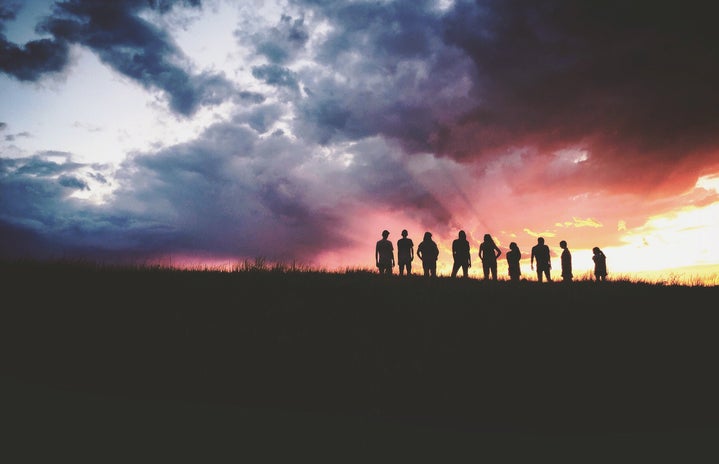Last summer, I had the incredible opportunity to fly to Albuquerque, New Mexico and teach at a family friend’s dance studio. They were incredibly hospitable: they showed me around town, the girls I taught were super talented, and overall, it was a great time.
While I was there, I taught them a piece of choreography to “Without You” by Oh Wonder (Great song, you should look it up) and created the beginnings of a trio with formations and transitions.
That was July 5, 2016.
Months later, January 4, 2017, I had an entire fall semester behind me and I had the spring semester in front of me to think about. I walked into a Taco Bell and “Without You” by Oh Wonder was playing over the speakers. Instantly, the entire trip, which was completely out of my mind at the point, came flooding back in a rush of plane flights, sightseeing and choreography. I smiled as I thought back to all the great times we had.
But it wasn’t the song that created the memories: it was the people I spent time with.
When we spend time with other people—regardless of the setting—we are creating memories with them and those memories are encased and hidden inside of sensory inputs waiting to be acknowledged again. You may smell oats and remember an oatmeal facial mask you tried with some girls at a sleepover. You might hear a song and remember when you heard it for the first time on a road trip.
Even certain food and spices can remind us of friends and family. My brother likes to cook and every so often he’ll be searching through the spices we have and come across “Ground Cloves.” He’ll take it out, smell it, and put it back, “I’m telling you man,” he tells me, “smells like Christmas…”
To my brother, cloves “smells like Christmas” which is his favorite holiday, but it’s not the spice that made it good or even the delicious food—it’s the great time we have as a family that makes that holiday good for him. So he immediately connects the smell with good feelings.
Why can’t we do this intentionally?
Imagine someone is having a bad day, but you cheer them up by bringing them, say, coffee. You may have connected that small act of kindness with the smell of a specific type of coffee without knowing it! Then, every time they smell the coffee, they’ll be reminded of what you did for them. Weeks later, when that memory is forgotten, they will buy that coffee again and the first whiff will immediately make them smile because of your kindness. These sensorial memories are a great way to inspire others to keep going, because it puts their life as a whole into perspective.
We can think about the place we are currently in so intently that we forget that it is one moment in an entire lifetime. It will pass, something else will come along, and that will pass as well.
Sometimes when I am walking through a department store, I’ll smell the cologne that my dad used to wear. My parents got divorced in 2010, so that’s not exactly the greatest sensorial memory to have on your mind while going to see a movie with your friends, but it reminds me that this trip to the mall could be a memory that could last forever—in a good way or a bad way.
I’d encouraged everyone to write down the story of their life.
Start with major moments, connect them with small moments, and fill in the details with memories. Most importantly, include the people. Having a bird’s eye view of our own lives makes us think about the whole picture. It can remind us of the things that we didn’t want to remember, true. But it will also show us that good and bad pass by and all we can do is look to the future. Then, we’ll have the chance to be grateful for our life and inspire someone else to keep going.
People love to live in the moment: that can be good sometimes, but don’t be caught up in the moment so much that you forget that you’re creating a memory.
Moments are in the present, but memories last forever.
Make them good ones, and you just might change someone’s life.
Image Credit: Cover, Image 1.


